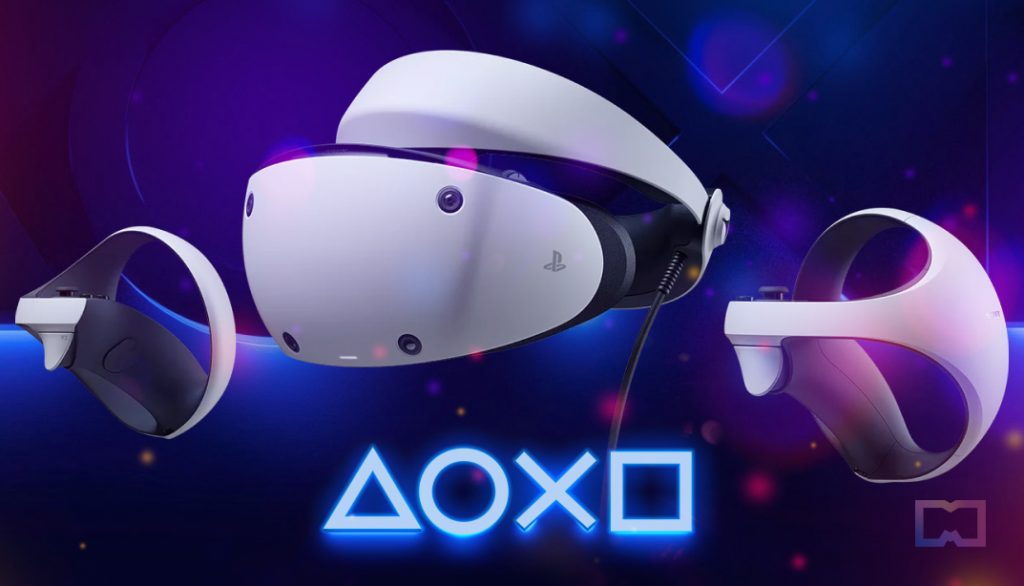Sony reduces production of PlayStation VR2 after underwhelming pre-orders

In Brief
Sony’s expectations for sales of its new PlayStation VR2 headset have reportedly been cut in half due to poor pre-order numbers.
The headset’s high cost and lack of compatibility with other systems have limited its appeal.

Sony lowers its expectations for the release of the PlayStation VR2 headset due to low pre-order numbers, indicating a lack of growth in the virtual reality industry despite high anticipation, Bloomberg reports.
The Tokyo-based company revised its shipment forecast for the PSVR2, set to launch on February 22, down to 1 million units. Originally, Sony aimed to have 2 million headsets available during the launch quarter to increase VR usage and adoption with its second-generation headset.
According to Bloomberg, Sony has informed a supplier to expect a decrease in orders for display panels. The company’s current plan is to ship around 1.5 million units from April 2023 to March 2024. However, this number may change based on demand.
Sony started accepting PSVR2 pre-orders on a limited basis in November but soon opened up the opportunity for anyone to order the device. The PSVR2 is only compatible with the PlayStation 5 console, which costs $499.99, and the headset itself is priced at $549.
A source familiar with Sony’s plans stated that the company expected high demand for launch games, especially Horizon: Call of the Mountain, a spin-off of the Horizon game series. However, the expensive new hardware may have discouraged potential customers.
“The PSVR2 will be no more than an expensive accessory for the PS5,”
Damian Thong, an analyst at Macquarie Capital, told Bloomberg.
However, Oculus VR founder Palmer Luckey tested the PSVR2 earlier this month and was impressed with the device. He said: “The first PSVR was arguably the biggest success of the generation, this version will do even better.”
The launch of PSVR2 coincides with a decline in VR market demand. Sales of the Meta Quest 2 headset significantly declined after a $100 price hike in August 2022. Now, Meta is heavily discounting its newest, only three-month-old headset, Meta Quest Pro.
Tech giants, such as Meta and Microsoft, have reduced their VR efforts as part of company downsizing. Despite the current weak demand, the future of AR/VR displays appears bright, with revenue expected to reach $451.5 billion by 2030, with a CAGR of 38.5%. Meanwhile, VR gaming is forecasted to have a value of $37 billion by 2028.
Disclaimer
In line with the Trust Project guidelines, please note that the information provided on this page is not intended to be and should not be interpreted as legal, tax, investment, financial, or any other form of advice. It is important to only invest what you can afford to lose and to seek independent financial advice if you have any doubts. For further information, we suggest referring to the terms and conditions as well as the help and support pages provided by the issuer or advertiser. MetaversePost is committed to accurate, unbiased reporting, but market conditions are subject to change without notice.
About The Author
Agne is a journalist who covers the latest trends and developments in the metaverse, AI, and Web3 industries for the Metaverse Post. Her passion for storytelling has led her to conduct numerous interviews with experts in these fields, always seeking to uncover exciting and engaging stories. Agne holds a Bachelor’s degree in literature and has an extensive background in writing about a wide range of topics including travel, art, and culture. She has also volunteered as an editor for the animal rights organization, where she helped raise awareness about animal welfare issues. Contact her on [email protected].
More articles

Agne is a journalist who covers the latest trends and developments in the metaverse, AI, and Web3 industries for the Metaverse Post. Her passion for storytelling has led her to conduct numerous interviews with experts in these fields, always seeking to uncover exciting and engaging stories. Agne holds a Bachelor’s degree in literature and has an extensive background in writing about a wide range of topics including travel, art, and culture. She has also volunteered as an editor for the animal rights organization, where she helped raise awareness about animal welfare issues. Contact her on [email protected].

















































